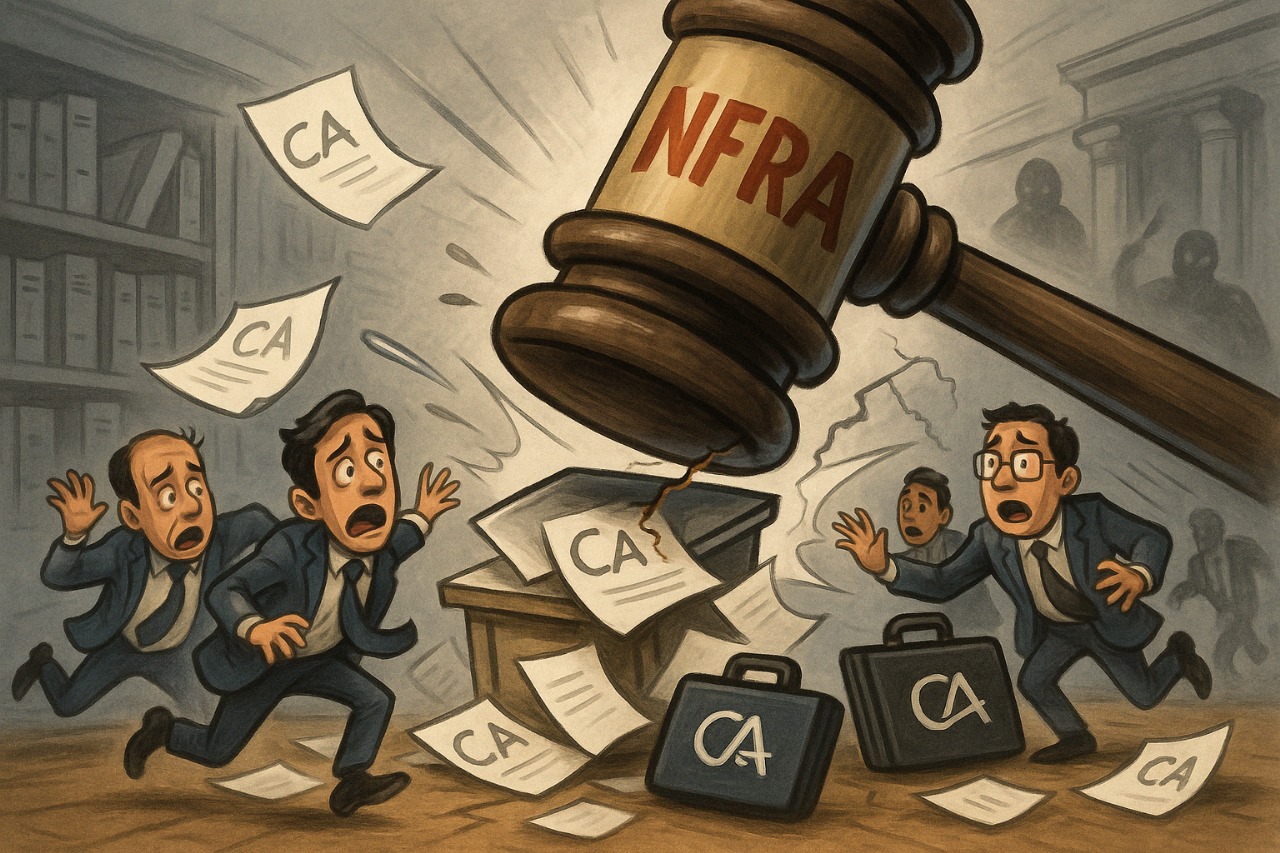In what has emerged as one of the largest professional crackdowns in India’s accounting history, the National Financial Reporting Authority (NFRA) has debarred 85 Chartered Accountants (CAs) and fined 103 professionals for serious lapses in audit practices over a span of three years—from 2022 to 2025. The enforcement measures are part of the regulator’s ongoing effort to uphold the integrity of financial reporting in the country.
The debarments range from six months to ten years, depending on the gravity of the violations. Many of the professionals were found guilty of gross negligence, failure to collect sufficient audit evidence, and non-compliance with mandatory auditing standards. In the most severe cases, auditors were accused of facilitating financial fraud, forging documents, and intentionally overlooking material misstatements in financial reports.
Case Studies: Coffee Day, Seya Industries & DHFL
The audit failures were not isolated incidents. NFRA highlighted systemic issues across multiple high-profile companies. In the case of Coffee Day Enterprises Ltd (CDEL), the engagement team was found to have ignored critical red flags, failed to exercise due diligence, and did not ensure a proper Engagement Quality Control Review (EQCR). Violations of Sections 185 and 139 of the Companies Act were cited.
Another egregious case involved the statutory audit of Seya Industries Ltd, where the auditors failed to preserve records, submit accurate reports, or cooperate with the NFRA. They were fined ₹20 lakh and debarred for a decade. Similarly, 18 branch auditors of DHFL were penalized in October 2023 for poor auditing standards, each receiving ₹1 lakh fines and bans ranging from 6 months to a year.
The Bigger Picture: Governance in Crisis
The NFRA’s enforcement actions reflect a deeper crisis within India’s corporate governance landscape. With rapid startup growth and complex financial structures, the role of auditors has become more critical than ever. However, insufficient internal checks, deliberate collusion with promoters, and poor understanding of auditing ethics have left the profession vulnerable.
Clauses invoked from Part I of the Second Schedule and First Schedule of the Chartered Accountants Act, 1949 included:
-
Non-disclosure of diversion of funds
-
Failure to verify loans and audit evidence
-
Ignoring mandatory auditor rotation procedures
SEBI’s alerts also contributed to several probes, including the one involving Gensol Engineering, and Reliance Capital. In many cases, auditors acted as enablers, failing to uphold their fiduciary responsibility to stakeholders.
What This Means for the Profession
NFRA’s actions go beyond just punishment—they aim to set a new benchmark for professional accountability. The regulator has urged the Institute of Chartered Accountants of India (ICAI) to tighten peer review processes and initiate more rigorous continuing education. Meanwhile, investors, lenders, and corporate boards are also being pushed to demand transparent disclosures and stricter oversight from their auditors.
According to NFRA, “Statutory audits present valuable information to stakeholders and public, forming the basis of key investment decisions.” The loss of trust due to ethical lapses has ripple effects on market confidence and financial stability.
NFRA’s decision to impose debarment periods between 6 months and 10 years—and not adopt a one-size-fits-all penalty—also reflects its evolving maturity as a regulator capable of distinguishing between error and intent.



